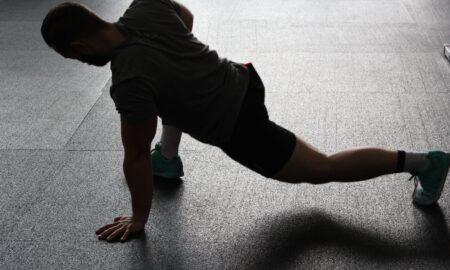A common concern among bodybuilders over 40 is how to retain muscle with the passing years. It’s important not only for aesthetic reasons but for health as well. Recent research shows that muscle weakness is the most common cause of loss of mobility among the elderly. One simple way to preserve muscle is to just keep training.
Certainly modifications may be in order. Weights that were easy in your 20s may prove too formidable when you’re past 40.
Diet also plays a part. Various studies show that diet can favorably affect muscular progress in older trainees. That’s clear from a recent study featuring men aged 49 to 73, who underwent 21 weeks of supervised weight training.
Half of the subjects were advised to eat high-fiber grains, fruits, vegetables, lean meats, fish and dairy foods. The suggested percentage of nutrients closely matched that recommended in the United States (the study took place in Finland). In addition, the subjects were told how to plan meals that would provide at least one gram of protein per kilogram (2.2 pounds) of bodyweight daily. That’s slightly more than the 0.8 grams advised for most people. They lifted weights twice a week for 21 weeks, using a program that focused on progressive resistance, with a special emphasis on leg training.
A high-fiber, lowfat diet fosters a decline in men’s testosterone. Lower testosterone isn’t conducive to building muscle, which is one reason you rarely see vegan bodybuilding champions; vegetarians who do eat milk products and eggs fare much better.
The study found that the combination of more protein and a fat intake of at least 30 percent led to increased testosterone and improved gains in the subjects’ muscular size and strength. A high-fiber diet didn’t seem to have any adverse effects on building muscle or the hormone picture. The key was the 30 percent fat intake. Eating less fat than that while following a high-fiber diet would likely adversely affect testosterone count. The men also had higher levels of free, or active, testosterone. Most testosterone is bound to proteins in the blood and becomes active only when unbound. One way to encourage that is to get more protein, as the Finnish study of older men demonstrated.
—Jerry Brainum
Sallinen, J., et al. (2007). Dietary intake, serum hormones, muscle mass and strength during strength training in 49-73-year-old men. Int J Sports Med. 28(12):1070-1076.




















You must be logged in to post a comment Login